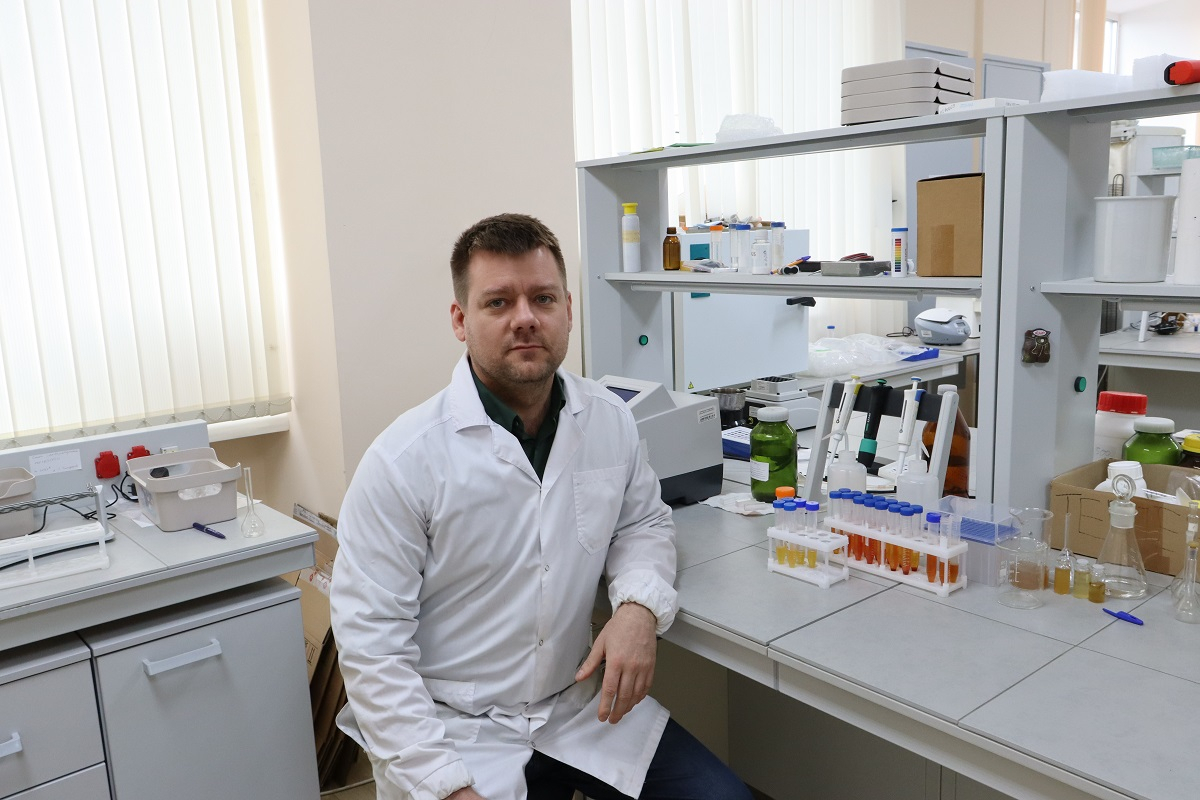Chemists from St Petersburg University develop a method for fast and environmentally friendly determination of heavy metals in meat

Scientists from St Petersburg University have developed a method for determining heavy metals in meat using ultrasound and environmentally friendly solvents.
The results of the research supported by a grant from the Russian Science Foundation are published in the scholarly journal Microchemical Journal.
Today, researchers throughout the world are looking for new ways to identify harmful substances in food. Some of the metals, such as lead, cadmium or mercury, found in soil and water can contaminate the environment and enter the organisms of animals and fish that will be eaten in future. Additionally, heavy metals in food can accumulate in the body and cause long-term effects.
The problem of determining heavy metals in food, especially in meat, fish, vegetables and fruit, is solved by microwave radiation. The sample is dissolved in concentrated acids in the presence of hydrogen peroxide under the influence of microwave radiation. This process takes a long time, consumes a lot of energy and uses aggressive solvents that are harmful to the environment.
For many years, scientists from St Petersburg University have been developing and studying new ways of analysing substances, including food. Andrei Shishov and Irina Timofeeva, early-career researchers from St Petersburg University, have been awarded the honorary title of Laureates of the 2022 Russian Presidential Prize in Science and Innovation for Young Scientists for their studies in this field.
The University’s chemists have proposed a more effective way of detecting heavy metals in meat using deep eutectic solvents (DES). Such solvents are made from environmentally friendly natural substances. They are non-toxic and can be easily recycled without releasing harmful emissions into the atmosphere. They are a mixture of two or more components whose melting point is significantly lower than that of the parent substances, making them suitable for use as solvents at room temperature.
"We have proposed an alternative method for determining heavy metals in meat products that uses ultrasound instead of microwaves to extract metals in the presence of our new environmentally friendly solvents. The experiments conducted made it possible to compare different variants of metal extraction in different solvents and proved the efficiency of our method," said Andrei Shishov, Professor in the Department of Analytical Chemistry of St Petersburg University.
The project ‘New approaches for environmentally safe and automated quality control of food products, agro and aquatic facilities using deep eutectic solvents’ is supported by a grant from the Russian Science Foundation. The team of scientists used the infrastructure of the St Petersburg University Research Park.
For reference: St Petersburg University is the leader in the number of grants from the Russian Science Foundation. In 2022, St Petersburg University researchers received 112 grants, which is 5.5% of the total number of winning projects and the largest number of grants for one organisation. At the same time, 25% of the funded projects are led by early-career researchers. In 2023, the University maintained its leadership in this contest of the Russian Science Foundation: scholars from St Petersburg University received 70 grants, which is 5% of the total number of winning projects. St Petersburg University submitted 214 applications for the 2023 contest, and almost one in three of them was supported.
In their research, the University scientists demonstrated the effectiveness of the method for analysing chicken meat. In future, the proposed environmentally friendly method of analysis can be used for other types of food, such as different types of meat, vegetables and dairy products.
St Petersburg University, the oldest university in Russia, was founded on 28 January (8 February) 1724. This is the day when Peter the Great issued a decree establishing the University and the Russian Academy of Sciences. Today, St Petersburg University is an internationally recognised centre for education, research and culture. In 2024, St Petersburg University celebrates its 300th anniversary.
The plan of events during the celebration of the anniversary of the University was approved at the meeting of the Organising Committee for the celebration of St Petersburg University’s 300th anniversary. The meeting was chaired by Dmitry Chernyshenko, Deputy Prime Minister of the Russian Federation. Among the events are: the naming of a minor planet in honour of St Petersburg University; the issuance of bank cards with a special design; and the branding of the aircraft of the Rossiya Airlines to name just a few. To mark the 300th anniversary of St Petersburg University, a postage stamp depicting the Twelve Collegia building and the monument to Count Sergey Uvarov was issued.
By the decision of the Governor of St Petersburg Alexander Beglov, 2024 is a year of the 300th anniversary of St Petersburg University in St Petersburg. On the day of the University’s 300th anniversary torches will be lit on the Rostral Columns on the Spit of Vasilyevsky Island. St Petersburg University flags will be raised on the Palace Bridge. The city public transport will be decorated with the University’s symbols. New tourist maps will feature the locations of the University buildings, with thematic and historical materials about the University placed nearby. During St Petersburg’s City Day celebrations in May 2024, St Petersburg University will be a participating venue. The traditional ‘Scarlet Sails Festival’ will also be dedicated to the anniversaries of St Petersburg University and the Russian Academy of Sciences. Additionally, the University has launched a website dedicated to the upcoming holiday. The website contains information about outstanding University staff, students, and alumni; scientific achievements; and details of preparations for the anniversary.

